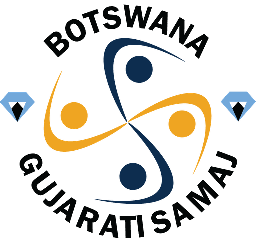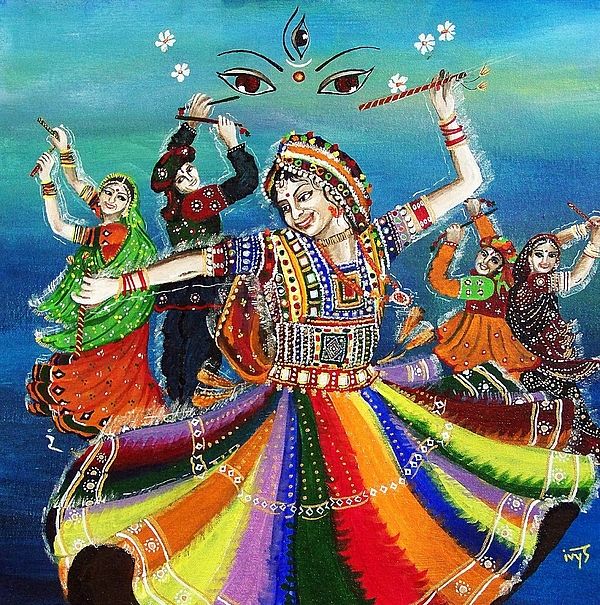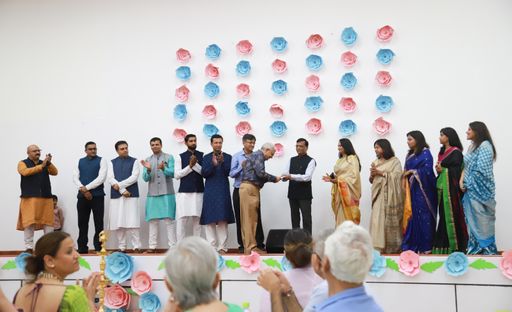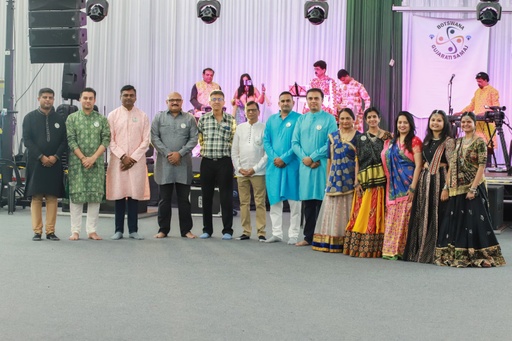Botswana Gujarati Samaj

About Us
Botswana Gujarati Samaj (BGS) has been in existence for more than 25 years. The organization has been formed with constitution and has been formally registered with Botswana registrar of societies.
Initially it was a Ladies association known as MAHILA MANDAL.
In the year 1995, these ladies voted to change the Mahila Mandal in a group open to both Men and Women. The entire Gujarati Community were asked to attend an open discussion to express their views. It was decided that a Gujarati Samaj be formed.
A steering committee was elected to organize and formalize these views. Members also express their desire to continue the activities of Cultural, Educational and Festive activities along with focus on Community Needs.
Keeping the above in mind, the steering committee had put together a written Constitution so that the future elected committee and Samaj Members work within the aims and objectives of the samaj.
In the past Mahila Mandal with the help of the community had very successfully held many Festive functions and celebrations. Aim was to add more education and culture occasions especially for our Children.
Botswana Gujarati Samaj was formally registered in February 1997. Constitution was formally registered by the Registrar of Societies.
There are about 180 registered Gujarati families in and around Gaborone, consisting of Businessmen, Professionals, Employees and Qualified Professionals in Diamond cutting & polishing industry.
The community members are here from India and other African countries, Kenya, Zambia, Zimbabwe and Tanzania.
Cultural Activities

Navratri
Navratri, (Sanskrit: “nine nights”) in full Sharad Navratri; Navratri also spelled Navaratri; also called Durga Puja, in Hinduism, major festival held in honour of the divine feminine. Navratri occurs over 9 days during the month of Ashvin, or Ashvina (in the Gregorian calendar, usually September–October). It often ends with the Dussehra (also called Vijayadashami) celebration on the 10th day. In some parts of India, Dussehra is considered a focal point of the festival, making it effectively span 10 days instead of 9. Additionally, as Navratri depends on the lunar calendar, in some years it may be celebrated for 8 days, with Dussehra on the 9th. There are four similar festivals, also called Navratri, which are held at various stages of the year; however, the early autumn festival, also called Sharad Navratri, is the most significant.
Navratri is celebrated differently in India’s various regions. For many people it is a time of religious reflection and fasting; for others it is a time for dancing and feasting. Among fasting customs are observing a strict vegetarian diet and abstaining from alcohol and certain spices. Dances performed include Garba, especially in Gujarat.
Diwali Cultural Show
Diwali, also spelled Deepavali, one of the major religious festivals in Hinduism, lasting for five days from the 13th day of the dark half of the lunar month Ashvina to the second day of the light half of Karttika. (The corresponding dates in the Gregorian calendar usually fall in late October and November.) The name is derived from the Sanskrit term dipavali, meaning “row of lights,” which are lit on the new-moon night to invite the presence of Lakshmi, the goddess of wealth.
During the festival, small earthenware lamps filled with oil are lit and placed in rows along the parapets of temples and houses and set adrift on rivers and streams. The fourth day—the main Diwali festival day and the beginning of the lunar month of Karttika—marks the beginning of the new year according to the Vikrama calendar. Merchants perform religious ceremonies and open new account books. It is generally a time for visiting, exchanging gifts, cleaning and decorating houses, feasting, setting off fireworks displays, and wearing new clothes.
Hindu Gujarati New Year, also known as Bestu Varas (sitting year), is celebrated the day after the Diwali and is the fourth day of the five-day Diwali festival. The Hindu New Year is on Kartak Sud Ekam (The first month and first day of the HinduLunar Calendar, Kartak is the first month in this new year while Ekam refers to the first day). The Hindu community all over the world celebrates the New Year to mark the beginning of a new fiscal year and people put their worries behind them and prepare to welcome a new beginning.

Executive Committee
Vivek Desai,
Chairman
Hetal Patil,
Vice Chair
Dipti Patil,
Secretary
Rakesh Shah,
Treasurer
Committee Members 2024
Gents (from Left) : Jignesh Patel, Keval Kharadi, Chetan Gandhi, Bhavesh Naik, Rakesh Shah, Gaurang Dalia, Shardul Desai, Vivek Desai
Ladies (from Left) : Daksha Patel, Hetal Patel, Priti Upadhyay, Nakshi Barot, Krishna Barot

Are you a Gujarati ? want to become a BGS member .......

